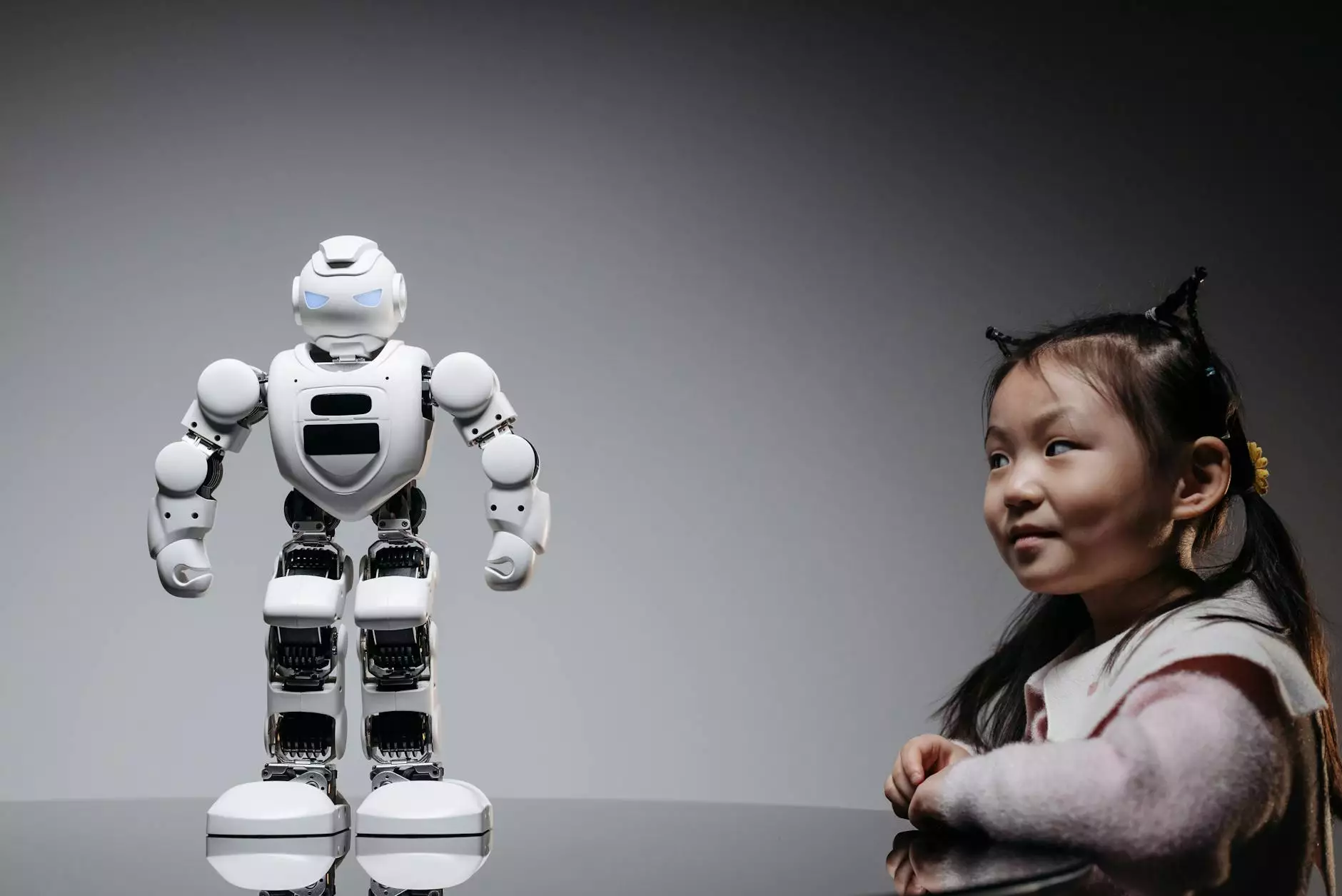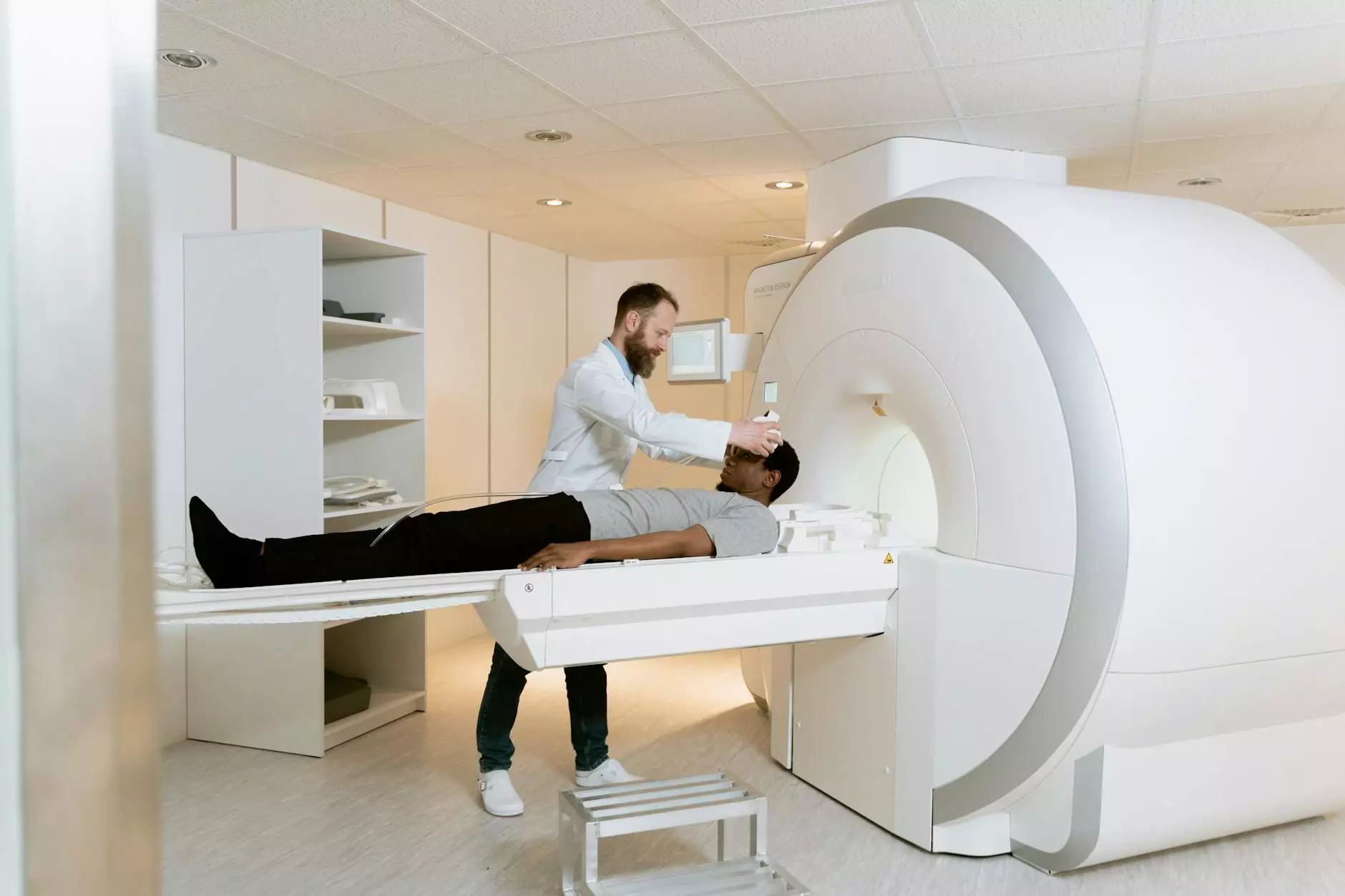Transforming Education with AI: The Future of Learning and Special Education

As we embrace the digital age, artificial intelligence (AI) is set to transform numerous sectors, with education standing out as a key beneficiary. Educational institutions across the globe are increasingly incorporating AI tools, especially for enhancing learning experiences in the realms of special education and general educational services. In this article, we will delve into the various ways AI is utilized in education, explore its potential through the context of "ai who writes essays," and understand its profound impact on learning methodologies.
The Integration of AI in Education
The integration of AI in education is not just a fleeting trend; rather, it represents a fundamental shift in how knowledge is disseminated and acquired. AI technologies are now being harnessed to:
- Personalize Learning Experiences: AI can analyze student performance and behavioral data to tailor educational content to individual learning styles.
- Enhance Accessibility: Tools such as speech-to-text services and AI-driven applications are designed to assist students with disabilities.
- Streamline Administrative Tasks: AI can automate grading and administrative workflows, freeing up educators to focus on teaching.
- Provide Real-time Feedback: AI-powered platforms enable immediate responses to student inquiries and performance evaluations.
AI and Special Education: A New Horizon
For students with special needs, the promise of AI is particularly significant. AI technologies provide tailored learning experiences, ensuring that all learners have the tools they require to succeed. Here are several ways through which AI enhances special education services:
1. Customized Learning Pathways
With AI, educators can develop customized learning pathways that consider the unique challenges faced by each student. Algorithms can analyze data points—such as commands, errors, and inconsistencies—to create an optimized learning experience.
2. Powerful Assistive Technologies
AI-driven assistive technologies, such as text-to-speech systems and virtual reality simulations, enable students with various learning disabilities to engage with educational material effectively. These tools provide alternative methods for students to access and interact with content.
3. Predictive Analytics
Using predictive analytics, AI systems can forecast student performance, helping educators identify who may need additional support before issues arise. This proactive approach is invaluable in special education settings.
4. Data-Driven Insights for Educators
AI tools provide valuable insights into student progress, allowing teachers to adjust their instructional methods based on real-time data. This level of responsiveness is crucial in special education, where one size does not fit all.
Revolutionizing Essay Writing with AI
Among the myriad applications of AI in education, one of the most exciting is in the realm of writing. The keyword “ai who writes essays” serves as a focal point for understanding how AI enhances the writing process:
Enhancing Creativity and Clarity
AI writing tools can assist students in brainstorming ideas and outlining compositions, which is particularly useful for those who struggle to express their thoughts coherently. The use of AI can lead to:
- Improved Idea Generation: AI systems can suggest topics and angles for essays based on trends, aiding students in their creative processes.
- Grammar and Style Checks: Advanced grammar and style checkers powered by AI provide students instant feedback, helping them to elevate their writing skills.
- Structured Outline Assistance: AI can help students create structured outlines, making the writing process less daunting.
Supporting Special Needs Students
For students with learning disabilities, AI-powered writing assistants can offer critical support. These tools can:
- Convert Speech to Text: Students can dictate their ideas, which AI converts into written form, aiding those with dysgraphia or similar challenges.
- Provide Suggestions for Improvement: AI tools that analyze writing can suggest improvements tailored to each student's writing level.
- Reduce Anxiety Related to Writing Tasks: By guiding students through the writing process and providing support, AI can alleviate the pressure that often accompanies essay writing.
Educational Technologies Using AI
In addition to AI writing tools, various educational technologies are emerging that employ AI to improve teaching and learning. These technologies include:
1. Intelligent Tutoring Systems (ITS)
ITS utilize AI to deliver personalized instruction based on individual student needs. These systems adapt the curriculum in real-time, enhancing the educational experience across subjects.
2. Virtual Classrooms
AI-driven virtual classroom platforms facilitate learning from anywhere, providing an inclusive environment for students regardless of their circumstances, which is particularly beneficial for special education.
3. Gamification of Learning Experiences
Gamification strategies integrated with AI encourage student participation in learning activities. By adapting difficulty levels in games based on real-time performance, students are engaged and motivated to succeed.
4. Language Processing Tools
Natural Language Processing (NLP) applications help students develop language skills. These tools can assist in understanding complex texts and improving vocabulary.
AI’s Role in Teacher Support
Teachers play a pivotal role in education, and AI serves as a powerful ally in their efforts. Here’s how AI supports educators:
- Time Efficiency: By automating repetitive tasks such as grading and attendance tracking, AI allows educators to focus on higher-level teaching responsibilities.
- Professional Development: AI-driven platforms offer insights into teaching effectiveness, helping educators pursue targeted professional growth opportunities.
- Collaborative Teaching: AI tools facilitate collaboration among teachers from different disciplines, fostering a comprehensive educational environment.
The Future of AI in Education
The future of AI in education is promising, with innovations continually emerging. As technologies advance, the potential for AI to create dynamic, engaging, and inclusive learning environments will only increase. Key trends to watch for include:
- Greater Personalization: Future AI systems promise even deeper insights into student behavior, allowing for hyper-personalized learning experiences.
- Integration with Augmented and Virtual Reality: Enhanced learning experiences through immersive environments will be possible as AI technologies merge with augmented reality (AR) and virtual reality (VR).
- Collaboration Between Human and AI Educators: The coexistence of human teachers and AI systems will result in an educational model that maximizes the strengths of both parties.
Conclusion: Embracing the AI Revolution in Education
The integration of AI within the education sector signifies a revolutionary shift that empowers both learners and educators. With its capabilities, especially in enhancing personalized learning and providing support in special education, AI is poised to redefine how education is approached. As we move forward, embracing these technological advancements will be crucial to ensuring that education remains accessible, equitable, and effective for every student.
As organizations like thesify.ai lead the way in harnessing AI for educational purposes, the focus remains squarely on fostering an environment that promotes learning and growth. The journey of integrating artificial intelligence into educational services has just begun, and its potential is limitless. By prioritizing innovation and embracing new technologies, we can create a more inclusive future where every learner has the opportunity to thrive.









